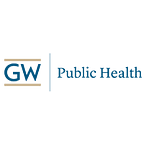Invisible Soldiers on the Frontlines: The Realties of Contact Tracing
By Amanda D. Castel
In the face of COVID-19’s deadly rampage, I have been volunteering with the District of Columbia Department of Health, contacting hundreds of people who have tested positive for the coronavirus with the hope of tracking down even more people who may have been exposed. Even as a physician with clinical and applied public health training, these are difficult calls to make.
Imagine telling a mother she has to figure out how to isolate herself from her husband and children in a one-bedroom apartment. Then asking her to think about whom she has been in contact with all while she is coming to grips with a diagnosis that could jeopardize her ability to keep her job or even worse, threaten her life.
This is the emotionally taxing, but essential work of contact tracing. On a good day, it is complex. In the face of a pandemic, it is a Gordian knot of unfathomable proportions. While politicians and governments grapple with how to balance the economic disruption with the destruction of human lives, a small group of health professionals bound by privacy laws already is hard at work on the front lines.
These are the people who under normal circumstances keep our communities safe by conducting disease surveillance to monitor for both old and emerging diseases; track vaccinations of young children; ensure that your local restaurant is adhering to proper food safety protocols; or work with hospitals and healthcare facilities to contain healthcare acquired infections. These are the fearless invisible frontline soldiers who are currently working non-stop to not only protect and ensure the best outcomes for individuals but for the community as a whole.
As we start to plan how to re-open the country, contracting tracing will be an essential tool in our public health arsenal, and yet, it is a mainstay of disease control efforts conducted by local and state public health workers. The basic mechanics of contact tracing involve collecting vital information about a person’s symptoms and who they were in contact with; and reaching out to those they may have exposed to COVID-19 for testing and subsequent isolation or quarantine.
There are approximately 2,800 health departments in the U.S. with an estimated workforce of 434,000 people. Estimates show that we need somewhere around 300,000 people to conduct contact tracing. This would imply that the vast majority of the existing public health workforce would need to ignore their daily disease prevention and control activities and refocus their efforts solely on contract tracing if we expect to have any chance of stopping the spread of COVID-19 and preventing another surge when businesses, schools, public transit and other services begin to re-open. It will not be enough to simply identify volunteers or hire people to do this work; it will take training and developing a certain skill set.
Contact tracing involves instilling trust, ensuring confidentiality, and building rapport with a person so that they will share personal and sensitive information with you. Often you are delving into the details of one’s employment, living situation, or immigration status. For many people, you are also an invaluable source of information and a counselor of sort — determining how to provide them with masks and gloves, connecting them or their family members to testing or food delivery while also comforting and reassuring them during one of the most stressful periods in their lives. And once you develop this relationship, you have to instill the same level of trust with their contacts. In public health speak, we call each of these individuals “cases”, but they are more than that. They are spouses, students, essential workers, and families whose stories and circumstances stay with you long after you have made that initial call.
And yet, if the goal is to safely re-open the country fully, the epidemiologists, public health nurses, disease intervention specialists, environmental health specialists, and laboratory professionals, whose job it is to do the work of tracking the virus’ spread will be essential to the fight. We should demonstrate we’ve learned from the lessons of the very recent past.
We have seen how our country has been woefully under-prepared to meet the health and safety needs of the vital healthcare workers and hospital staff who are risking their lives and the lives of their families to care for COVID-19 patients. While we must continue to express our gratitude for their sacrifice and ensure they have the support and resources they need to treat the sick, we also cannot afford to allow the next flank in our line of healthcare defense to falter.
We have a long way ahead of us as we tread our way through this pandemic. Since COVID-19 first reached the shores of the United States, many local and state public health workers have been working tirelessly with limited resources, to contain the spread of this formidable virus. From day one, they have been conducting contact tracing and providing guidance to healthcare facilities and employers as to how to contain the virus, when to clear people to return to work, and how to protect the most vulnerable.
So as we consider how to return to “normal” while continuing to protect our first responders, nurses, doctors, and our fragile healthcare infrastructure, we must garner commitments from states and the federal government leaders to also protect and support our local and state health department workers to ensure that we not only have sufficient numbers of ventilators and personal protective equipment but that we have adequate numbers of public health workers to conduct the essential work of contact tracing and disease containment. As we forge ahead to win this battle, we must guarantee that all of the healthcare heroes on the frontlines are protected and supported.
Amanda D. Castel, MD, MPH, is a professor of epidemiology at Milken Institute School of Public Health and has been volunteering on the DC Department of Health COVID-19 response team.
